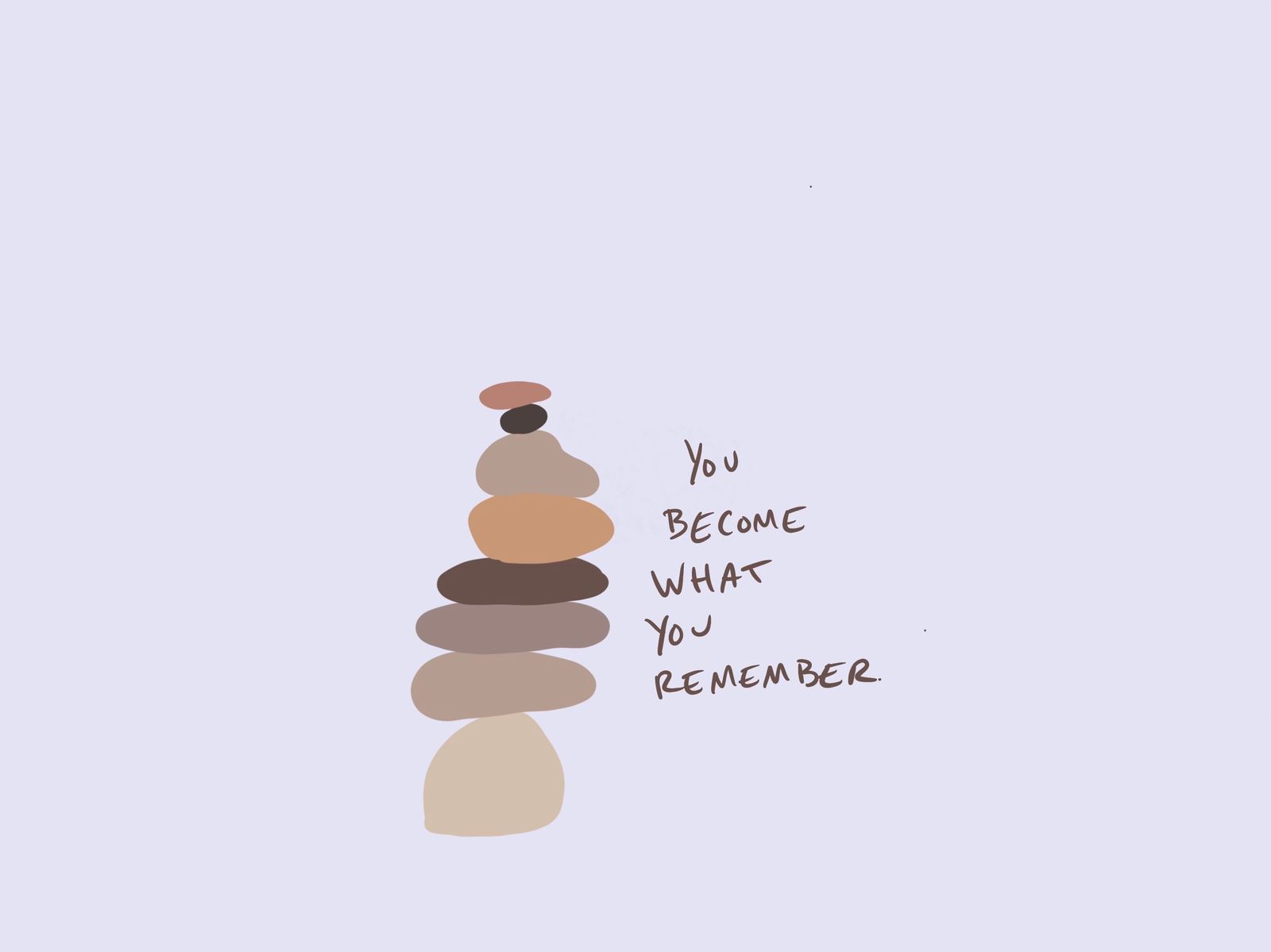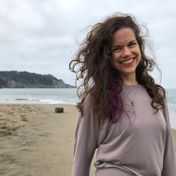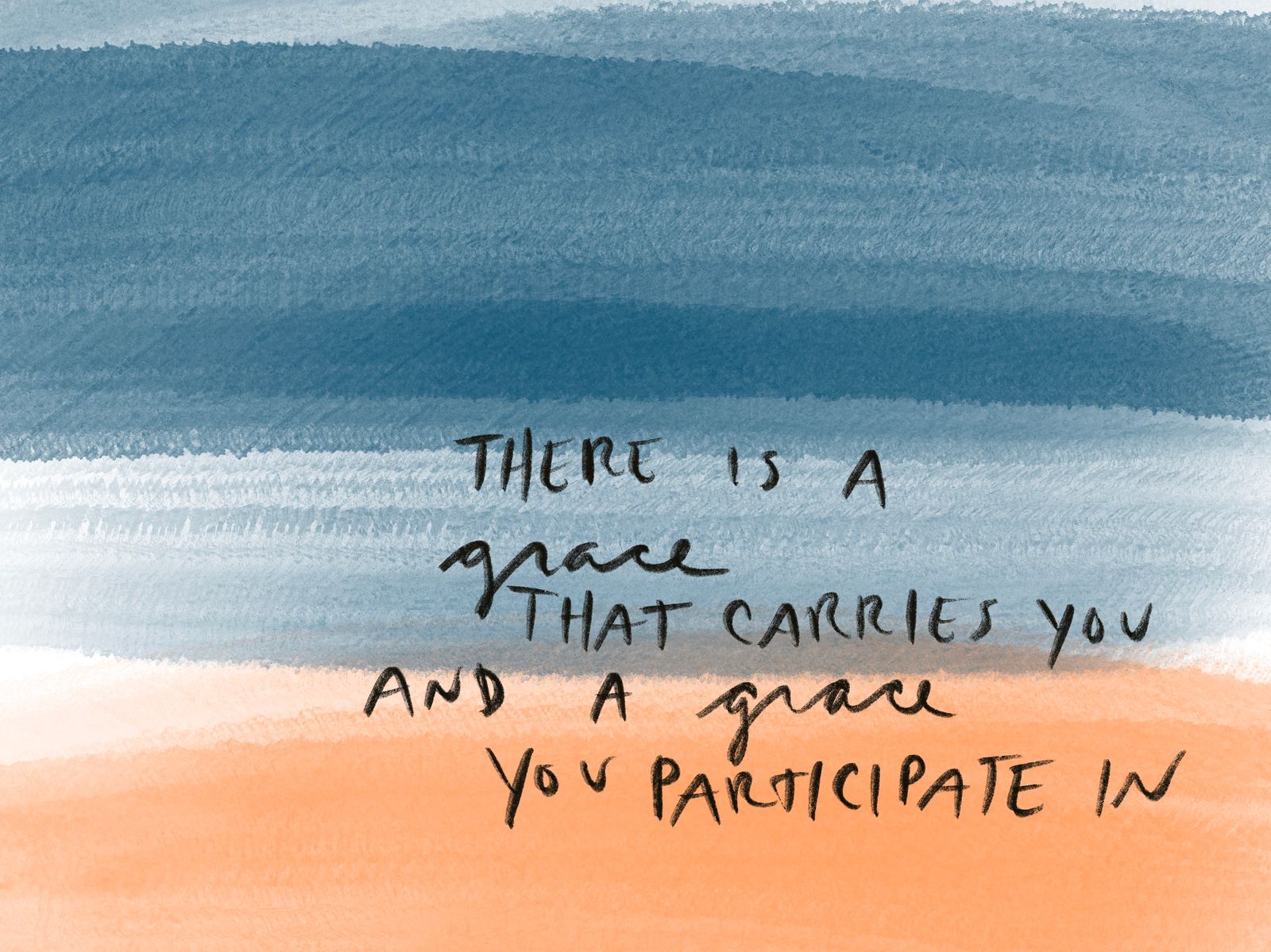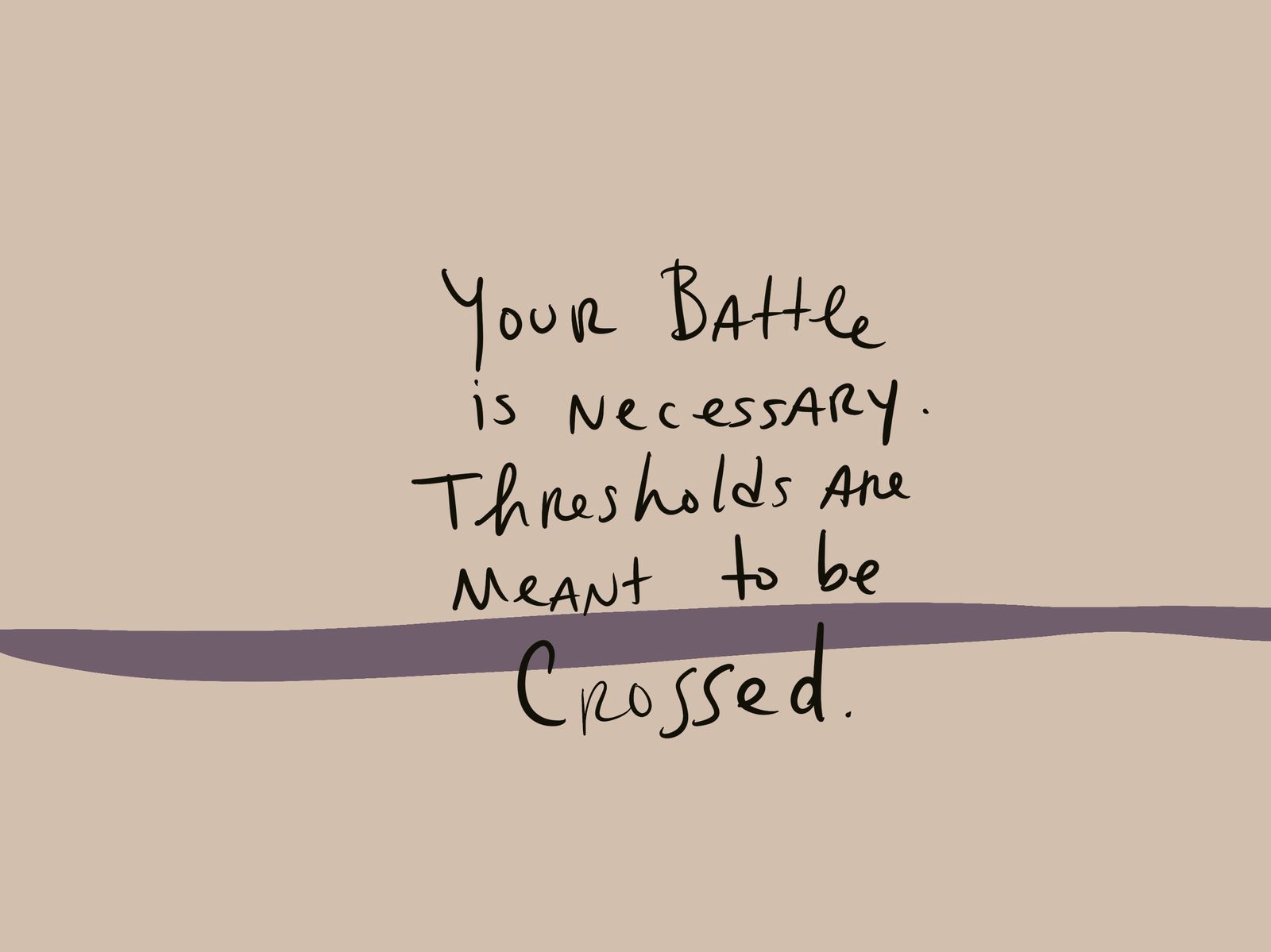My faith commands me to remember.
Throughout the Old Testament, when his people were desperate and God showed up—however he showed up—they raised stones to remember. God helped them win impossible battles or he caused them to be utterly defeated, they raised stones of remembrance. God made promises and issued punishments, they built altars of stone. He parted waters, gave dreams, however he showed up, his people piled stones, so they would remember.
For a while after my nephew died, I'd take the time on hikes to build small, balanced rock structures in the middle of creeks around Atlanta. I didn't know then why I had the impulse to build cairns. I just knew I needed to remember.
I've been trying to raise stones of remembrance more intentionally now, to create landmarks in my journey through the practice of gratitude. Gratitude is not merely positive thinking, it's a deeper naming: here is how I received love. Here is where I remember all the joy, pain, and loss that came with the love. Here is where I choose to trust the love that surrounds and animates me even when I do not understand it.
Over a meal shared with friends, we remember our losses and triumphs, the love that held us through it all. The miracle child that lives and runs and laughs. We raise stones and build cairns together. We remember.
In the mail, I send small cards that say: the child you lost, we lost him too. We remember.
In each space, the relentless love of God is present. I do not understand it, but I can name it and that is gratitude.
You become what you remember.
The kids and I and some friends went hiking once at Arabia Mountain. Like it's neighbor to the north, Stone Mountain, Arabia Mountain is a monadnock, an isolated mountain of bedrock towering above the surrounding landscape, made of a pocket of volcanic magma that cooled and set and hasn't moved since prehistory. Once it was covered with dark soil, but the ground eroded away around it, leaving it exposed as bare rock. The landscape is lunar, stark and gray, going up and up and down, pockmarked with pools of standing water. Marking the trail to the peak of the mountain and down again is a line of cairns made of gray granite. At the entrance, there is a small placard that declares, "Keep your eye on the rock cairns to find your way."
After we climbed around on the granite mountain for a while, we began to explore the woodlands and wetlands that surrounded it—it's a startling change, to go from the surreal landscape of exposed rock into the close embrace of a young forest within a few steps. We wandered the blue-blazed forest trail for a while, finding a lake and a stream, the trees filtered the sunlight just right so everything glowed green-gold. Suddenly, we emerged from the forest back onto the granite, I stopped to study the map—I was sure we had a half mile of forest trail to go.
"Mama, do you know where we are?" Little Girl asked me.
I flipped the not-to-scale printer-paper trail map clockwise and conferred with my friend who took the map and flipped it two turns counterclockwise.
"Mama, do you know where we are?" she asked again.
"I know we're on Arabia Mountain," I said.
"Mama, do you know where we are on the map?"
"No, not really."
"Are we lost?"
I looked up and saw a cairn several hundred feet away.
"No, no we aren't, not at all. There's a cairn right there, we'll follow them to the parking lot—well, eventually, I'm not exactly sure which direction the parking lot is, but at least we'll just have to retrace our steps."
We made it to the car 15 minutes later.
Like those cairns on Arabia Mountain, the ones that we raise with our people and with our gratitude become beacons that guide us when we're lost. When the topography of our lives changes under our feet and we are disoriented and don't know our way, the stones we've raised will help us remember which way to go, they will point us toward love.





